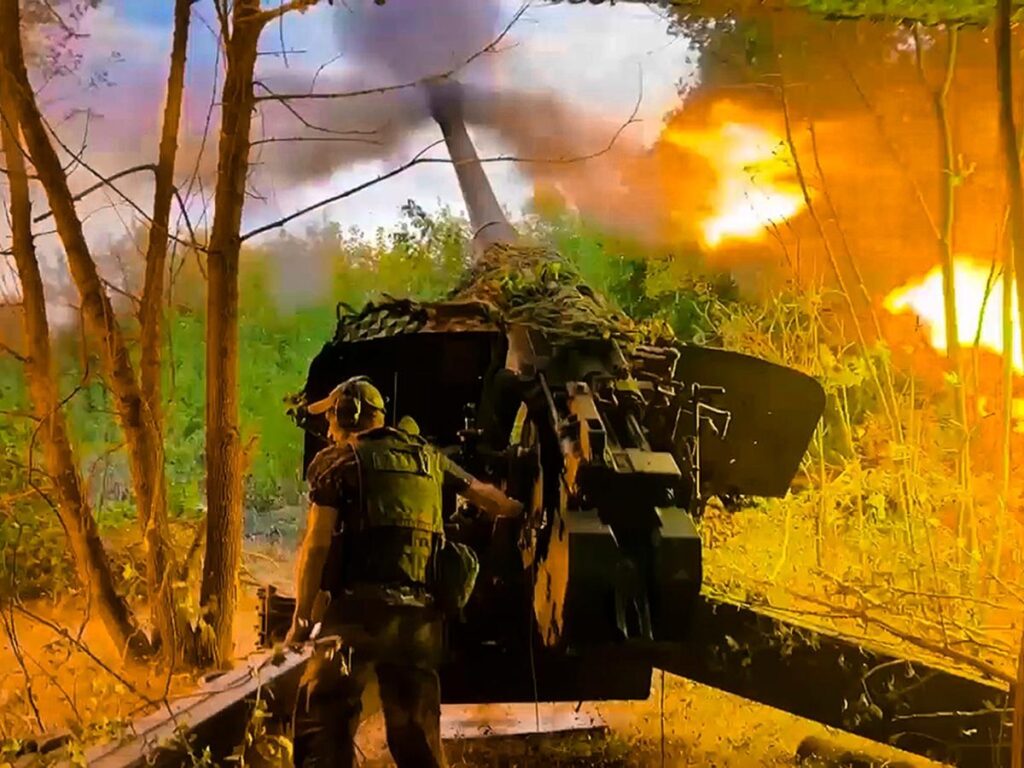The ongoing conflict in Ukraine, now extending over two and a half years, remains heavily dominated by artillery, which continues to play a pivotal role on the battlefield. A recent analysis from the Royal United Services Institute (RUSI) emphasizes that Russia possesses a significant advantage in artillery capabilities, which has been instrumental in shaping the high casualty rates and military dynamics observed in the war. It is estimated that Russian artillery accounts for over 70 percent of Ukraine’s combat casualties, underscoring the importance of artillery in determining the effectiveness and outcomes of military operations. This artillery superiority not only affects the distribution of casualties and material losses on both sides but also influences the broader operational possibilities and the political landscape surrounding the conflict.
Despite the implementation of international sanctions aimed at crippling Russia’s military capabilities, the country has managed to maintain and even enhance its artillery production capacity. Analysts from RUSI highlight that without disruptively targeting Russia’s artillery supply chain, the West risks enabling Russia to reinforce its military position in Ukraine in the coming years. The report indicates that Russia’s defense industry has not only remained resilient but is also expanding through new facilities and increased importation of crucial materials. With a self-sufficient supply of key resources and access to Soviet-era equipment, Russia appears well-endowed to sustain its military operations in Ukraine. However, the analysts also note that the protraction of the war may lead to increased dependency on foreign imports, which could prove to be a vulnerability for the Russian military in the long run.
The West’s challenge lies in effectively targeting and disrupting the intricate supply chains that fuel Russia’s artillery production. Current international sanctions have not significantly hindered Russia’s ability to obtain necessary materials, largely due to protective mechanisms within the country’s industrial sectors. Nevertheless, the RUSI analysis identifies several vulnerabilities in Russia’s procurement processes that Western governments could exploit. Recommendations include imposing sanctions on essential supplies, proactively purchasing raw materials to prevent access to hostile nations, and exerting diplomatic pressure on countries exporting goods to Russia to reconsider their trade relationships.
One specific avenue suggested by RUSI involves targeting imports like chrome ore, which are essential for producing artillery barrels, along with restricting the influx of machining equipment. The analysts argue that by quickly acting to disrupt these supply channels, Western nations can significantly impair Russia’s artillery capabilities, making it increasingly difficult for Moscow to sustain its operations as the conflict progresses. The report warns that if left unaddressed, Russia’s fire superiority will only grow stronger, posing an escalating threat to Ukrainian defenses and hindering any efforts to turn the tide of the conflict.
The perceived urgency of this situation is further complicated by Russia’s expanding security partnerships with countries such as China, Iran, and North Korea. The evolving military relationships among these nations raise alarms in Western capitals, particularly in light of the potential for enhanced logistical and technical support to bolster Russia’s artillery capabilities. This burgeoning cooperation stresses the importance of timely and decisive action from the West to disrupt the supply chains sustaining Russia’s military effectiveness. As Ukraine continues to take initiatives to diminish Russia’s artillery advantage through targeted strikes on ammunition depots and other strategic targets, a coordinated and comprehensive approach by its Western allies could be vital for further mitigating the threats posed by Russian artillery.
Despite Ukraine’s efforts to reduce the impacts of Russia’s artillery, there remains a critical need for a more proactive strategy from Western nations to level the playing field. As the war evolves, the necessity for the West to act swiftly in disrupting Russia’s supply chains cannot be overstated. The RUSI report serves as both a wake-up call and a guide for policymakers on how to effectively counter Russia’s artillery dominance and support Ukraine in stabilizing its defenses against ongoing aggression. Only through a concerted international effort to identify and exploit vulnerabilities within Russia’s military supply chains can the West hope to alter the current trajectory of the conflict and facilitate peace and stability in the region.

